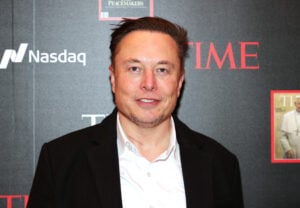Twitter’s Blue Check Subscription Service Can Generate Almost $1B Annually If Subscribers Feel Special
If it goes wrong, then the financial consequences could be disastrous.

(Photo by Theo Wargo/Getty Images for TIME)
Elon Musk, the new owner of Twitter, announced that the platform will have a subscription service for $8 per month (down from $20) where users will have various enhanced features such as priority in replies, mentions, and searches, ability to post long videos and audios, limited ads, and paywall bypasses for partner publications.
In addition to the above, subscribers will receive the elusive “verified” badge which some consider to be the crowning achievement of Twitter. Those who already have it will have 90 days to subscribe or lose their badge.

Generative AI In Legal Work — What’s Fact And What’s Fiction?

The verified badge was initially set up for journalists, A-list celebrities, corporate brands, and certain notable people in order to prevent impersonations. In 2016, applications for “verified” status became open to the public. But many users have interpreted the badge as a status symbol as it would place their account on par with notable people. This likely resulted in a deluge of applications. It got so bad that in November 2017, Twitter shut down the applications and would not reopen them until mid-2021.
Over time, the verification process has been criticized for being vague and inconsistently awarded with preferences given to left-leaning journalists or influencers. Some even consider it a derogatory term and look at people with verified accounts with suspicion. Regardless, many people still appear to want the verified badge to boost their profile.
Musk must have noticed this and is trying to monetize the demand. How much money could this make? It is hard to say, but a hint can be found in Twitter’s verified account, which currently has at least 4 million followers. Assuming all of the followers are willing to pay the $8 monthly fee, it will generate $384 million in annual revenue. That is a pittance compared to its $5.08 billion in revenue from advertising in 2021, but it is not chump change either. Assuming the fee will eventually increase to $20/month, which Musk initially wanted, 4 million subscribers can translate into $960 million in annual revenue.
Musk said that the subscription is the only way to combat the bots and trolls, which he plans to elaborate on later. However, he has also acknowledged that it is necessary to pay the bills.
Sponsored

Generative AI In Legal Work — What’s Fact And What’s Fiction?


The Business Case For AI At Your Law Firm


Law Firms Now Have A Choice In Their Document Comparison Software

AI’s Impact On Law Firms Of Every Size

This proposal has met heavy resistance. Most people who already have the verified badge have pledged not to subscribe even if that means losing the badge. Known celebrities probably do not need it and will likely find other ways to verify themselves. In addition, some may not want the badge as it may be seen as financially supporting Musk and his political positions, which can damage their reputations. Finally, it can be the catalyst to an exodus from the platform because, if a celebrity leaves, their followers might leave with them.
Others have criticized the move as devaluing the verified badge and treating nonsubscribers as second-class users or equivalent to bots. If 4 million people are verified, what is to distinguish one person from another? Musk stated that there will be a secondary tag for public figures and politicians. But if this secondary tag is used to distinguish someone of note, then it could render the verification badge pointless, and many will question whether to keep it.
If Musk wants the subscription model to succeed, he needs to remember why the verified badge was so coveted in the first place: its exclusivity. Exclusivity is why certain people buy limited edition cars at a premium even though in some cases they are little more than the unsold stripped base models with a fancy badge in the back marketed as “weight-reduced, race-inspired” cars. It is why there is currently (as of the date of publication) a Supreme Court case because elite colleges are only accepting a limited number of students.
Musk’s plan to give verified badges to subscribers is controversial. Celebrities probably do not need it, and a group of people are hesitant to financially support a man they do not agree with. If it goes wrong, then the financial consequences could be disastrous. But if done right, it can generate a billion dollars in revenue eventually. To do this, he not only has to provide subscribers value for their money, but also make them feel special.
Sponsored

How Transactional Lawyers Can Better Serve (And Maintain) Their Clients

AI’s Impact On Law Firms Of Every Size

Steven Chung is a tax attorney in Los Angeles, California. He helps people with basic tax planning and resolve tax disputes. He is also sympathetic to people with large student loans. He can be reached via email at stevenchungatl@gmail.com. Or you can connect with him on Twitter (@stevenchung) and connect with him on LinkedIn.







